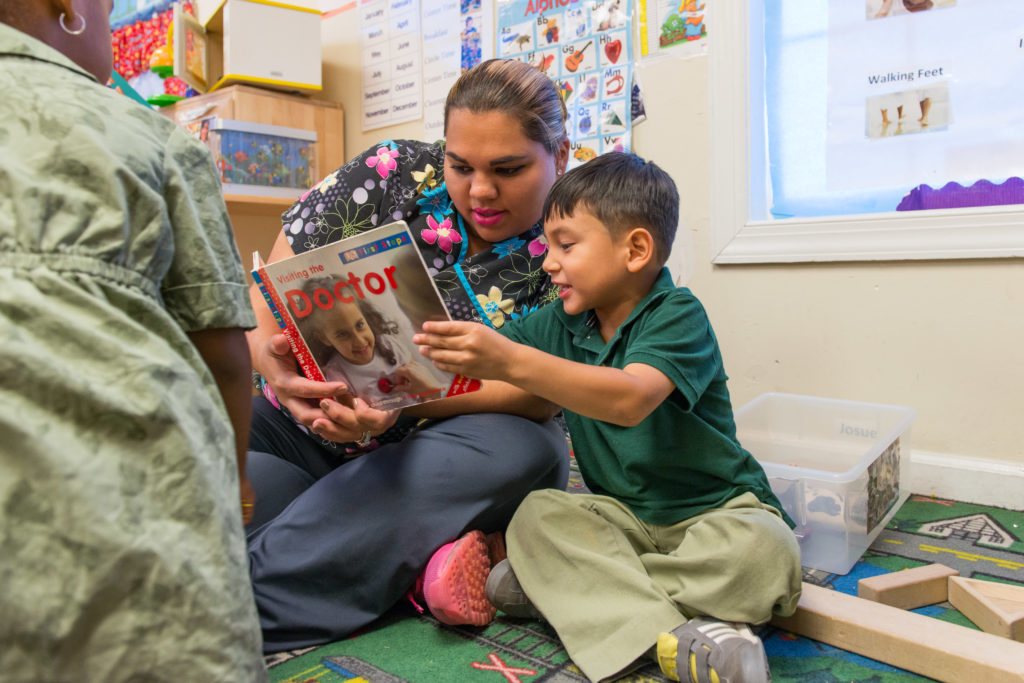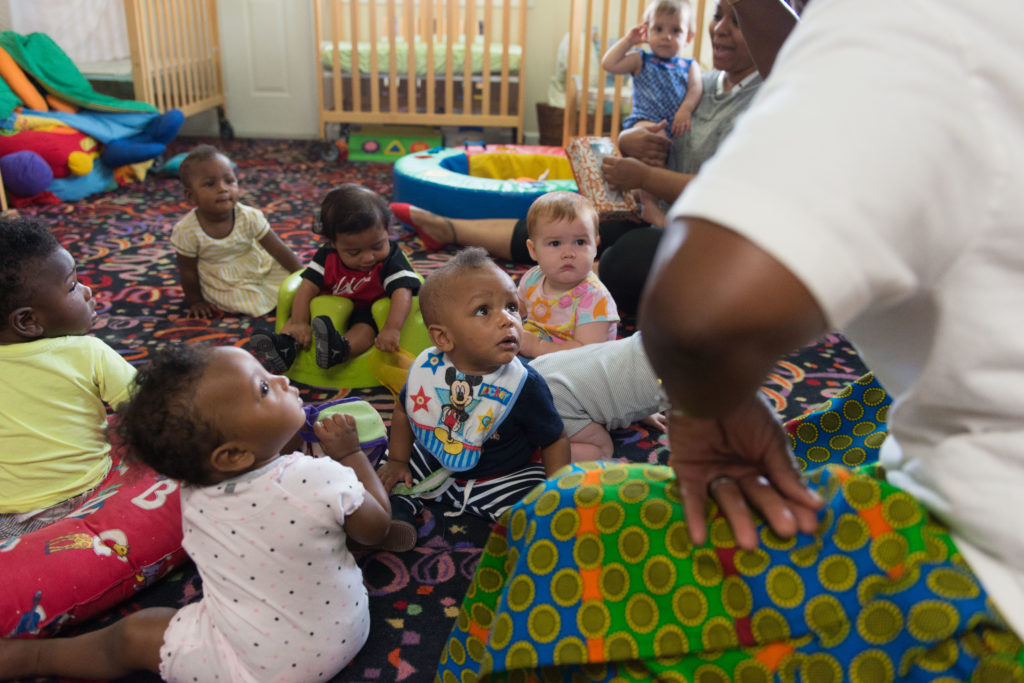Why Early Childhood Matters
Why Early Childhood Matters
Research shows that early experiences affect the development of brain architecture and provide the foundation for all future learning, behavior, and health. Providing children with high-quality early care and education will help to ensure that they are prepared to be successful students and thriving members of their communities.
Unfortunately, high-quality early care and education, particularly for children below age 4, is neither accessible nor affordable for many Louisiana families. As a result, Louisiana employers lose a significant amount of money every year from employee absences and turnover due to child care issues ($762 million), and the Louisiana economy as a whole loses $1.3 billion from child care breakdowns.
Right now, Louisiana spends around 1% of state dollars on early care and education. Increasing access to affordable high-quality early care and education in Louisiana allows parents to go to work or school; provides businesses with a reliable workforce; provides a stable funding stream too early care and education providers, which are usually small businesses owned and operated by women of color; and ensures children enter kindergarten ready to learn, reducing the likelihood the state will have to pay for remedial education efforts later in that child’s life.
Economic Case
- 66% of Louisiana children age 5 and under have both, or their single parent, in the workforce and must spend significant time in child care.
- Child care costs almost as much as public college tuition in Louisiana, with infant care in a child care center costing over $8,700 per year on average.
- Employee absences and turnover due to child care issues cost Louisiana employers over $762 million a year, causing a $1.3 billion loss annually for our economy.
- A previous study conducted in 2017 found that child care issues impact parents’ workforce participation:
- 1 in 7 Louisiana residents with a child age 4 or under had turned down a promotion at work due to child care issues;
- Almost half of respondents with a child under age 4 reported missing work regularly;
- 1 in 6 had quit a job and;
- 1 in 13 had been fired because of child care issues.
- Louisiana spends around 1% of state dollars on early care and education.
- The Early Childhood Care and Education Commission found that it will take an initial investment of $86 million, with subsequent investments for 10 years, for Louisiana to ensure every at-risk child can access an early care and education program.
- In 2021, the Commission found that if Louisiana does not make this investment, in 10 years, our state will experience a collective $12.1 billion loss.
- But if we make that investment, and continue making it, we will experience a collective $1.8 billion economic gain.
- Some studies even show that accessing a high-quality early care and education program can help children have long-term health benefits and reduce a child’s likelihood of future involvement in the criminal justice system.
Sources:
- 2020 KIDS COUNT Databook
- Child Care Aware
- Louisiana Policy Institute for Children – Child Care and the Economy in Louisiana
- Louisiana Department of Education
- Louisiana Policy Institute for Children, Losing Ground study
- Louisiana Early Childhood Care and Education Commission
- Louisiana Policy Institute for Children Juvenile Justice fact sheet


Brain Development
- 80% of brain development takes place from birth through age 3, and 90% by age 4, establishing a critical foundation for future success.
- Early experiences affect development of the brain architecture, which provides the foundation for all future learning, behavior, and health.
- The science of brain development explains the connection between early learning experiences and long-term success. Just like a weak foundation of a house, a weak foundation of the brain can be fixed—but it is difficult, and therefore expensive, to do so.
- Public investment in early childhood provides a greater return than any other time of life; Nobel Prize-winning economist James Heckman’s recent research shows a return on investment (ROI) of up to 13%.
- Heckman describes investing in the care and education of young children as the most efficient use of a state’s financial resources.

School Readiness
- Investing in early care and education for young children helps to provide them with a foundation upon which they can develop the social, emotional, and problem-solving skills necessary for them to learn and grow.
- At an early age, children begin to learn to regulate their emotions, solve problems, express their feelings, and organize their experiences and then use those skills when they arrive at school.
- Children who attend high-quality early care and education programs have been shown to achieve higher test scores and have improved social and emotional skills.
- High-quality early care and education can have profound long-term positive effects on children, including fewer referrals for special education services, fewer grade retentions, and increased likelihood to graduate from high school.
- Early care and education programs help ensure that children enter kindergarten ready to succeed, reducing the likelihood the state will have to pay for remedial education efforts later in that child’s life.
- Right now, only 30% of Louisiana children arrive at kindergarten meeting critical benchmarks.
- This is especially concerning when considering that children who begin school behind, or below the appropriate benchmark, generally remain behind.
- When children can read proficiently by third grade, they are more likely to achieve academic success, graduate from high school, and do well when they enter the workforce.


Child Outcomes
- Children who attend high-quality early care and education programs have been shown to achieve higher test scores and have improved social and emotional skills.
- High-quality early care and education can have profound long-term positive effects on children, including fewer referrals for special education services, fewer grade retentions, and increased likelihood to graduate from high school.
- Some studies even show that accessing a high-quality early care and education program can help children have long-term health benefits and reduce a child’s likelihood of future involvement in the criminal justice system